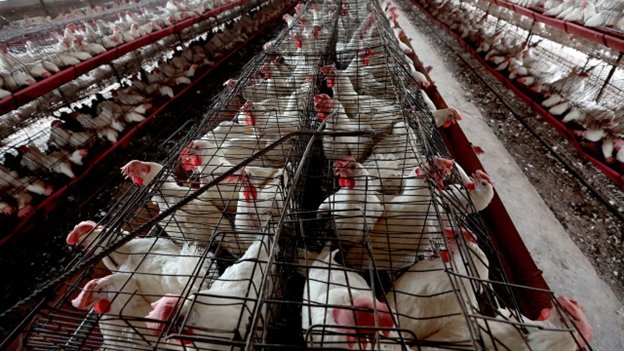
The need for strong collaboration between human and animal health officials is growing as climate change, human activity, and globalisation continue to drive the spread of zoonotic diseases. A ‘One Health’ approach allowed for rapid and robust response to the avian flu outbreak in Finland last year.
Credit: Getty Images.
Are you ready for the next pandemic? The UK may not be.
The last Friday of the year, the 27th December, marked World Pandemic Preparedness Day, a day often overlooked in the post-Christmas haze when many are either recovering from festive indulgence or gearing up for the new year. But this day is too important to forget; just think back to the winter of 2021, when the UK teetered on the brink of its third lockdown in less than a year.
The reality is that the next pandemic is not a matter of ‘if‘ but ‘when‘. “I’d bet the house on it,” warned Professor Sir John Bell, immunologist and former Regius Professor of Medicine at the University of Oxford. With climate change and a growing global population, zoonotic diseases – like Covid-19, swine flu, avian flu, and mpox – are becoming more frequent and more dangerous. When asked if the UK is prepared for the next pandemic, “the answer is no,” said Lord Patrick Vallance, the former Chief Scientific Adviser to the UK Government and current Minister for Science, earlier this year.
The lessons from the pandemic that turned the world upside down are being forgotten all too quickly. While the public inquiry into the UK’s COVID-19 response continues, it is clear that we must act now to implement the changes that are urgently needed. The inquiry must evolve into a catalyst for real change.
What should the UK be doing to improve preparedness?
Updating the national pandemic plan, last published in 2011, would be a logical first step. But beyond that, there are several systemic issues the UK must address to strengthen its pandemic preparedness.
The infrastructure built during the COVID-19 response, such as mass testing and the NHS Test and Trace system, has been dismantled, undermining the UK’s ability to respond quickly to future outbreaks. The UK lacks the capacity for large-scale mRNA vaccine production, relying on imports during emergencies. Critical biosecurity projects, such as the Vaccine Manufacturing and Innovation Centre, have been mothballed, or underfunded, weakening domestic health resilience. Bureaucratic delays in commercial trials approval further hamper the rapid development of treatments. Additionally, limited integration between human, animal, and environmental health systems undermines the effectiveness of a “One Health” approach, which recognises the interconnectedness of human, animal, and environmental health.
One standout aspect in the UK’s response to COVID-19 was the vaccination programme, driven by the Vaccine Taskforce. The success lay in the focused mission and agility with which it operated. A clear takeaway from this success is the need to accelerate clinical trials and create incentives for commercial trials to ensure the UK remains globally competitive and continues to offer the best treatments to NHS patients.
The UK had political momentum in the immediacy of the pandemic when we drove forward the 100 Day Mission pledge at the G7. This leaves the question: how can we leverage the scientific expertise and learnings from COVID-19 to meet the ambitious goals set out in 2021, both nationally and internationally?
Why supporting global health systems matters
National preparedness is only as strong as the health systems of our neighbours. Pandemics are global crises that don’t recognise borders. COVID-19 highlighted the consequences of unequal health system capabilities—countries with fragile health systems were disproportionately affected, emphasising the critical need for international solidarity.
Global emergency responses matter. The mpox outbreaks in eastern DRC, for example, are hitting children particularly hard. Last summer, the WHO declared the outbreak a public health emergency of international concern. The speed at which local health practitioners identified and traced the disease, despite never having encountered it before, demonstrates the importance of early detection. However, a lack of funding for critical outbreak response components, such as PPE for healthcare workers, highlights the ongoing gaps in emergency response.
Long-term investment in health systems is also critical. As the UK rethinks its approach to international affairs, there is an opportunity to consider how interconnected health systems worldwide are and to approach pandemic preparedness from a long-term perspective. This includes supporting governments across the world in strengthening their health systems and achieving universal health coverage.
The latter is especially important since strong global pandemic preparedness hinges on universal health coverage and robust national health systems. Many countries experiencing outbreaks like mpox also have weak healthcare infrastructures, with high rates of preventable deaths from diseases such as pneumonia and diarrhea. Strengthening these healthcare systems is essential not only to achieve universal health coverage but also to ensure that the world is better prepared to prevent and respond to future pandemics.
The path forward
Climate change, globalisation, and human activities like deforestation and wildlife trade are driving the spread of zoonotic diseases. Adding to this challenge, weak health systems in many regions and antimicrobial resistance (AMR) outbreaks threaten to spread unchecked. Addressing these interconnected factors through a “One Health approach”, is crucial to reducing the likelihood of future pandemics.
If the lessons of 2020 weren’t already clear, good pandemic preparedness is essential to protect lives, safeguard economies, and reduce the immense costs of future pandemics. Early action to strengthen global health systems prevents outbreaks from escalating and reaching the UK, while domestic investments in science, technology, and bio-surveillance ensure a rapid and effective response to emerging threats. Ultimately, pandemic preparedness aligns with the UK’s moral responsibility to support vulnerable populations and its strategic interest in national and global health security.
The UK must translate this urgency into action by reinvesting in its domestic health security infrastructure, embracing global leadership roles, and championing international collaboration.
Let us end on a positive note. The UK’s science and tech sector stands out as a critical strategic resource, with significant potential to spearhead global health efforts. By offering our expertise in areas such as genomic tracking of diseases and mutations, and nurturing international relationships, the UK can ensure the health of its own citizens while supporting the lives of millions globally. All we need is the political will.
PoliticsHome Newsletters
Get the inside track on what MPs and Peers are talking about. Sign up to The House’s morning email for the latest insight and reaction from Parliamentarians, policy-makers and organisations.


